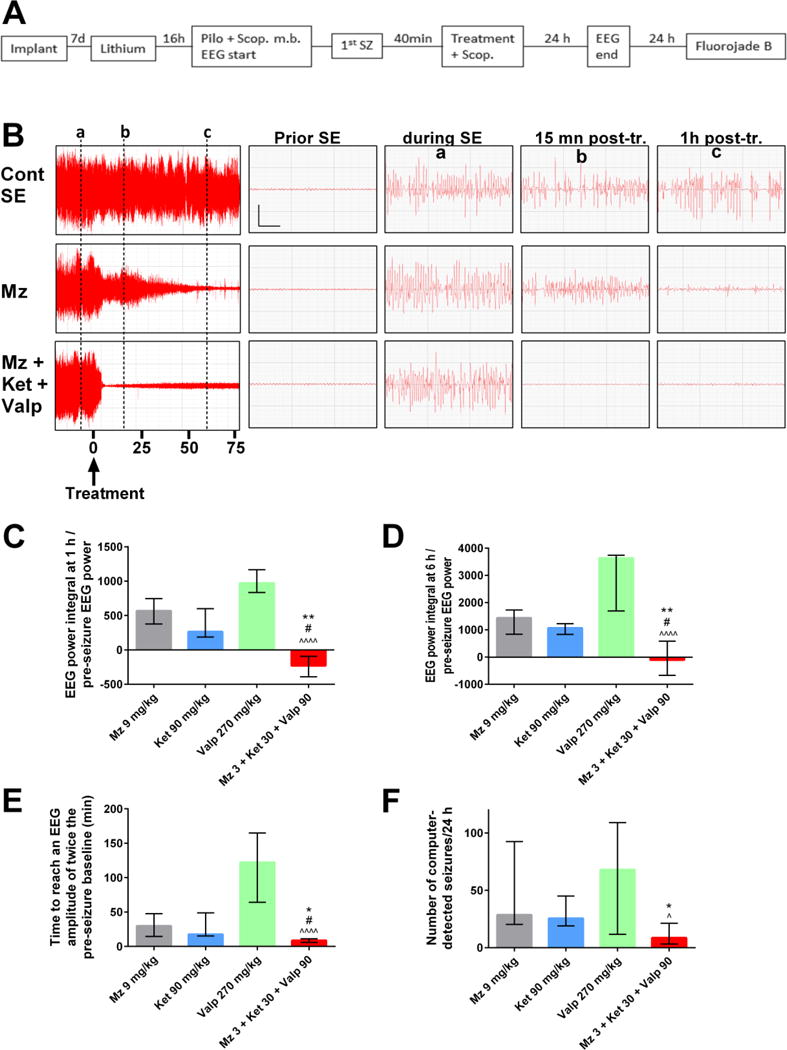Figure 1. Midazolam-ketamine-valproate therapy is more effective than triple-dose midazolam, ketamine or valproate in reducing SE severity.

A) Experimental flow: A severe form of status epilepticus (SE) was induced by administration of a high dose of lithium + scopolamine methyl bromide (scop. m. b), followed by an injection of a high dose of pilocarpine. Drug(s) or vehicle, and scopolamine (scop.) were injected 40 minutes after seizure onset. Animals were implanted 1 week prior SE induction and sacrificed 48 h after SE onset to assess neuronal injury with fluoro-jade B staining.
B) The left panels show the compressed EEG from SE control, midazolam, or midazolam-ketamine-valproate animals up to 75 min following treatment. The right panels show magnified 6-sec EEG tracings prior to SE or following SE (marked by vertical lines a–c). Vertical bar = 0.5 mV; horizontal bar = 1 sec.
C) This graph shows the ratio of EEG power integral over the first hour to initial EEG power at baseline, before pilocarpine injection. The midazolam-ketamine-valproate group (n= 10), which displayed an EEG power that fell below the pre-pilocarpine baseline, is significantly different from the midazolam (n=10; ** p <0.01), ketamine (n=8, # p<0.05) and valproate (n=10, ^^^^ p <0.0001) groups by Kruskal-Wallis, followed by Dunn’s test.
D) This graph shows the ratio of EEG power integral over the first 6 hours following treatment to initial EEG power at baseline, before pilocarpine injection. The midazolam-ketamine-valproate group (n= 10), which lowered the EEG power below pre-pilocarpine baseline, is significantly different from midazolam (n=10; ** p <0.01), ketamine (n=8, # p<0.05) and valproate (n=7, ^^^^ p <0.0001) by Kruskal-Wallis, followed by Dunn’s test.
E) This graph shows the time needed after treatment to reach an EEG amplitude of twice the pre-seizure baseline. The midazolam-ketamine-valproate group (n=9), which has the shortest time, is significantly different from midazolam (n=10, * p <0.05), ketamine (n=8, # p < 0.05) and valproate (n=8, ^^^^ p <0.0001) by Kruskal-Wallis, followed by Dunn’s test.
F) This graph shows the number of computer-detected seizures per 24 hours. The midazolam-ketamine-valproate group (n=9), which has the lowest number of seizures, is significantly different from midazolam (n=10, * p <0.05) and valproate (n=6, ^ p <0.05) by Kruskal-Wallis, followed by Dunn’s test.
